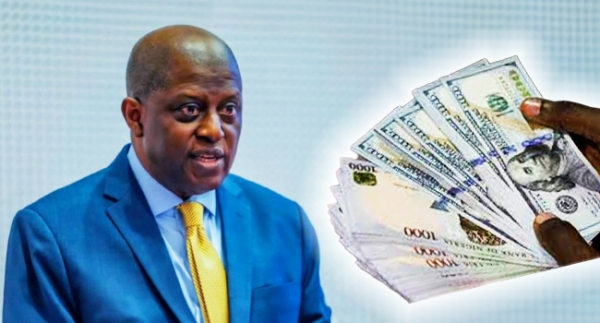The Governor of the Central Bank of Nigeria (CBN), Olayemi Cardoso, has revealed the country’s fundamental determinant of foreign exchange rates.
Contrary to a general belief that the apex bank determines FX rates, Cardoso said that economic fundamentals drive the foreign exchange rate.
The CBN governor revealed this during his address at the launch of the Nigeria Development Update in Abuja on Thursday, October 17.
Cardoso stressed that he would adhere to traditional central banking principles.
“The CBN does not determine the exchange rate; it is determined by the fundamentals. The CBN will ensure that we adhere to that,” Cardoso noted.
The CBN Governor expressed confidence that strengthening collaboration with fiscal authorities would lead to more stability in the exchange rate.
He also highlighted efforts to increase foreign exchange inflows into the Nigerian economy, noting: “When we started, FX inflows were about $200 million, but through sheer determination, we now record $600 million.”
He further remarked on the positive shift in investor confidence, stating, “Before, many potential investors were on the sidelines. Now, it’s amazing to see how many have stepped forward to invest in Nigeria.”
In July, Nigeria’s Foreign Exchange (FX) reserves climbed to a peak of $34.7 billion based on figures from the Central Bank of Nigeria’s website.
Naija News reports that this marks a rise of $110 million from the day before, which stood at $34.5 billion.
The reserves have been on the rise from previous days, accumulating an increase of $316 million since July 1.
This surge can be attributed to various reasons, such as the recent uptick in oil prices, better remittances from the diaspora, and the Central Bank’s initiatives to stabilize the local currency.
Analysts see this rise in international currency holdings as beneficial for Nigeria’s economy, as it offers protection against external disturbances and bolsters the nation’s capacity to fulfil its financial commitments.
A recent assessment by Fitch Ratings has given a favourable outlook to Nigeria’s economic situation, highlighting major reforms that have brought back macroeconomic stability and improved the consistency and reliability of its policies.


